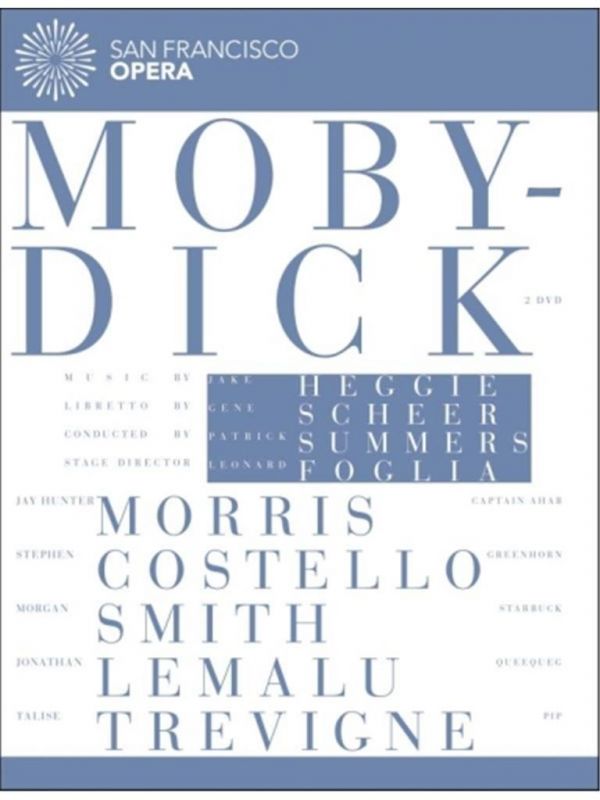HEGGIE Moby Dick
View record and artist detailsRecord and Artist Details
Composer or Director: Jake Heggie
Genre:
Opera
Label: Euroarts
Magazine Review Date: 02/2014
Media Format: Digital Versatile Disc
Media Runtime: 142
Mastering:
DDD
Catalogue Number: 205 9658

Tracks:
| Composition | Artist Credit |
|---|---|
| Moby-Dick |
Jake Heggie, Composer
Jake Heggie, Composer Jay Hunter Morris, Captain Ahab, Tenor Jonathan Lemalu, Queequeg, Bass-baritone Matthew O'Neill, Flask, Tenor Morgan Smith, Starbuck, Baritone Patrick Summers, Conductor Robert Orth, Stubb, Baritone San Francisco Opera Chorus San Francisco Opera Orchestra Stephen Costello, Greenhorn, Tenor Talise Trevigne, Pip, Soprano |
Author: David Patrick Stearns
Thanks to computer imagery, the seascapes are indeed possible. Librettist Gene Scheer wove together the personalities of half a dozen crew members in something of a psychological fever chart that traces a progression of longing – for anything from God, to wisdom, to finding home – all dominated by the grandiose madness of Captain Ahab. The only problem not quite solved here is motivating the crew’s obedience; these days, they’d have Ahab in a straitjacket upon leaving port. Instead, the first mention of Moby-Dick is accompanied by unhinged harmonies that the crew seems not to hear.
Musically, undulating string lines form the central motif of the opera, embodying the open-ended expanse of the sea and the existential loneliness that comes with being at its mercy. Ensembles are thoughtful Heggian monologues layered on top of each other that, plus solo soliloquies, create a mosaic of the shipboard life. Queequeg functions as an outlander contrast to the predominating Anglo culture; Greenhorn is the questioner, both of those around him (enabling dramatic exposition) and himself; while the grizzled Stubb simply craves a steak dinner. The confrontations between Starbuck (the voice of sanity) and Ahab at his craziest are as highly charged as anything in verismo opera. Overall, the score’s thematic development is the work of a master composer.
Though the computer imagery goes into overkill, some of the best moments are purely telegenic. Heldentenor Jay Hunter Morris gives Ahab a raspy edge, but visually a memorable sense of awe when Moby-Dick is sighted. Singing with more ease and richness of tone than anytime previously, Stephen Costello (Greenhorn) projects a sense of profound personal revelation in the final moments when, rescued at sea, he owns his own name (‘Call me Ishmael’).
While all the performances grew on me during repeated viewings – Jonathan Lemalu as Queequeg, Talise Trevigne as Pip and Robert Orth as Stubb – the Gibraltar-like baritone of Morgan Smith (Starbuck) is most consistently magnetic. Patrick Summers was undercut by the dry acoustic of San Francisco’s orchestra pit. But considering how much the sound envelope of Heggie’s Dead Man Walking bloomed over time, I look forward to a similar orchestral metamorphosis in this score.
Discover the world's largest classical music catalogue with Presto Music.

Gramophone Digital Club
- Digital Edition
- Digital Archive
- Reviews Database
- Full website access
From £8.75 / month
Subscribe
Gramophone Full Club
- Print Edition
- Digital Edition
- Digital Archive
- Reviews Database
- Full website access
From £11.00 / month
Subscribe
If you are a library, university or other organisation that would be interested in an institutional subscription to Gramophone please click here for further information.




